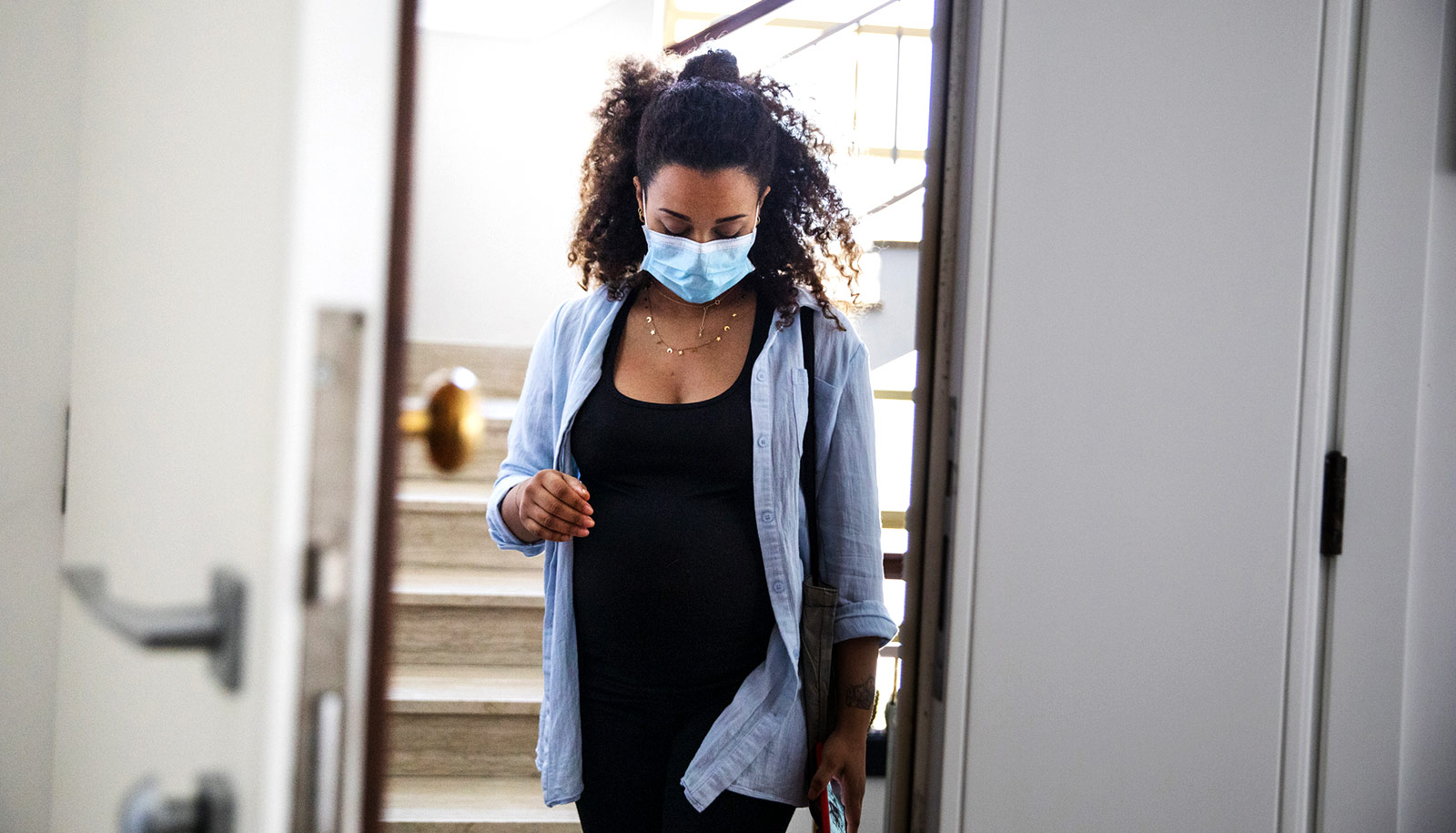People who gave birth in the hospital and their nurses report the negative consequences of hospitals’ pandemic policies in a new study.
“We found that visitor restrictions and separation policies were harming families and nurses. The effects for patients included loneliness, isolation, and mistrust, while nurses described mistrust and low morale,” says Molly Altman, lead author of the study and assistant professor in the University of Washington School of Nursing.
Importantly, Altman adds, both nurses and patients described how COVID “amplified existing racially biased and disrespectful care experiences for Black women and birthing people, in part due to loss of protection and advocacy that support people provide.”
The study, published in Global Qualitative Nursing Research, involved in-depth interviews with 15 patients from Washington state and 14 nurses from Washington, New York, Georgia, and Michigan. Nearly half of participants in both groups self-identified as BIPOC (Black and Indigenous people of color) and for slightly more than half this was their first birth.
Under COVID-19 restrictions, patients experienced a shift from in-person visits, a source of social and emotional support, to virtual conversations or telehealth and more perfunctory exchanges in offices with physical distancing. Pregnancy education and group classes all moved online, while family and friends were excluded from patient care when in the hospital or clinic. Meanwhile, nurses experienced shifting policies and procedures that led to a collective mistrust of management and administration.
In the interviews, researchers wrote, patient responses focused on how hospital adaptations “were inadequate to meet their needs” and, in addition to mistrust, nurse responses focused on how inconsistencies in policies and policy implementation affected their ability to “safely care for patients.”
What should change?
Altman suggests health care administrators take the following actions to counter the failures of current policies:
- Administrators need to collaborate on policy changes, particularly with communities that are directly affected by these changes
- Consider extending visitor policies to include multiple support people for patients in labor, as a way to mitigate risk of disrespectful care for marginalized communities
- Create educational resources to help patients understand policies that affect them and provide avenues for getting support and reassurance
- Develop clear, organized, and transparent communication pathways about policy changes at all levels: patient, nurse, and management
- Increase mental health assessment, support, and services for both patients and nurses to help build well-being amid crisis
- Include bedside nurses in decisions about care planning, risk management, and patient care.
Comments from patients on their experience
Here are a few verbatim transcriptions of statements patients gave researchers (with minor edits):
Telehealth:
“I want to be able to actually have a check-in and actually have a doctor be able to check everything’s fine and make sure the baby’s heartbeat is still okay or see how my uterus is measuring and things like that that are more concrete.… I see the phone conversation just more being like, ‘Is everything okay,’ and me saying ‘Yes’ and then that kind of being it.”
Communication with providers:
“We don’t talk about how this is affecting us or what it means for the future. It’s just they leave you hanging like, ‘Okay, well I’m guessing everything’s okay so I’m just going to walk on out of here.’ But if you could just say something nice, concise, and brief but meaty it would be perfect.”
Education and nursing support:
“I lost… the classes that we were supposed to need. I was so excited to join those classes because I could get a chance to meet with other mothers that we may build connections, right? But because of COVID we just don’t have the chance of doing that.”
“People were there [in labor] to support me and to make sure I was okay and then I felt like postpartum everyone disappeared.”
Racial bias:
“Being [a person] of color, you already kind of deal with the standoffish approach from certain people and so like… the virus kind of gives [them] that reason to, it’s just like that. It’s like even though I already feel this way, now I have a reason to act this way.”
“I’m an educated Black woman. I’m a nurse. I know what’s going on with my body and I know how this stuff works and I still feel like so inferior, like to my [birth] team. That’s crazy to me.”
Comments from nurses on hospital policies
Here are a few verbatim transcriptions of statements nurses gave researchers (with minor edits):
Lack of planning:
“I was disappointed to see that in the, at least a month, more like six weeks since we’d had just the one COVID patient, that not a lot had been done to prepare in the meantime, both on a national scale and just at our hospital.”
Policy changes:
“I felt like at times on my shift, policies would change literally every 15 to 30 minutes. You do something one way and you get an email within the hour that this now has changed and we’re doing this procedure this way and it was just constant like nobody knows what they’re doing so it was very stressful.”
Morale problems:
“I’m just doing everything for this patient and then I’m not thinking about my own family. Even if I [say] let whatever happen to me… I have responsibilities for my family too. I’m not just a nurse, right? I’m a mother. When I took the oath to be a nurse, before that maybe I took an oath to be a good mother.”
“[A patient complained and] that stung because I remember going to my manager’s room that day and asking for more supplies so that I could go into the room more frequently without having to break the gowns and reuse the gowns and she said, ‘You use what you have and I’m not giving you anything else.'”
Racial bias:
“[Obstetrical resident physician] went in to go talk to [a patient] about the need for induction and instead of including the father in the conversation or even introducing herself, she went in, completely turned her back on the dad… I’ve been there 10 years and I have never seen that with any Caucasian couple.”
“We need to really center the voices and experiences of marginalized people, especially BIPOC, in policy. We need to ensure that communication is transparent and that we are trustworthy to the groups we develop policies for—patients, nurses, the public, everyone,” says Meghan Eagen-Torkko, study coauthor and assistant professor in University of Washington’s Bothell School of Nursing and Health Studies. “We have to stop thinking of policy as a top-down process, because COVID has shown us quite clearly that this doesn’t work.”
Coauthors are from the University of Washington and The Perfect Push in Redmond. Funding came from the university’s School of Nursing.
Source: University of Washington



